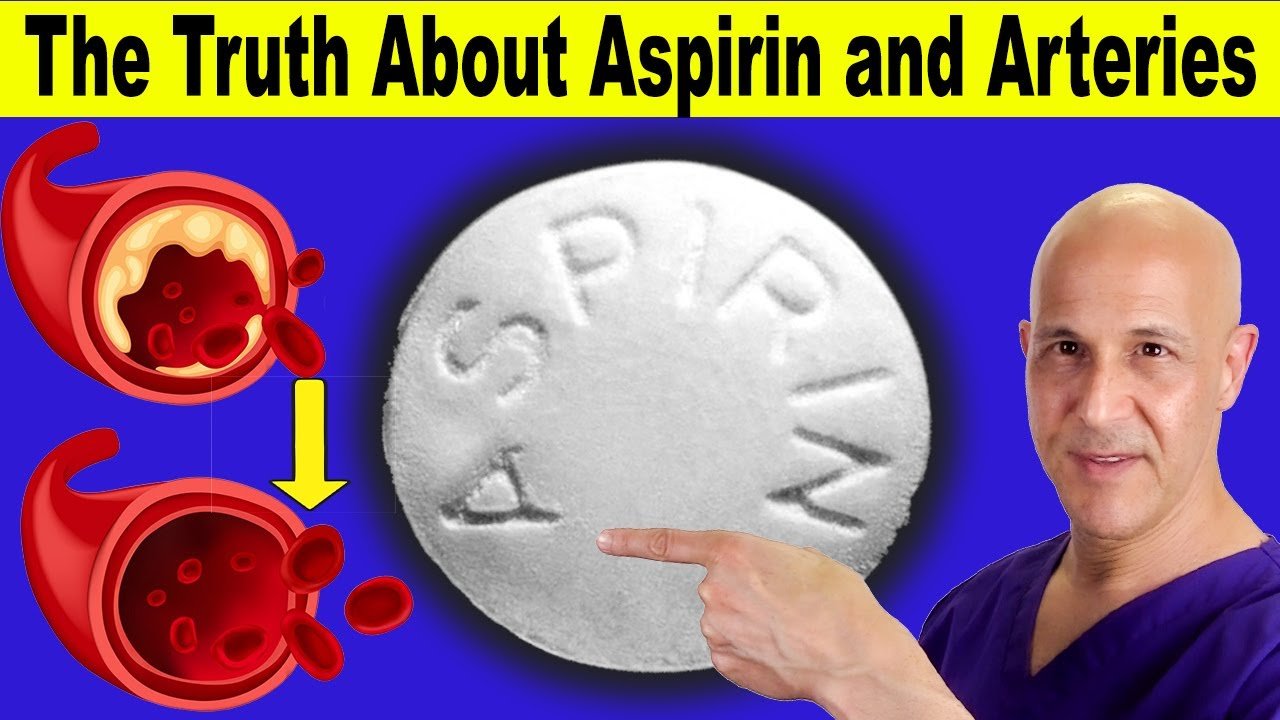Discover how aspirin plays a role in heart health, helping to unclog arteries and prevent cardiovascular disease. Dr. Mandell explains the science behind aspirin’s benefits and risks.
Introduction: The Role of Aspirin in Cardiovascular Health ❤️💊
Hello, everyone! Dr. Mandell here, and today, I want to talk about aspirin and its important role in heart health. If you’ve ever wondered how aspirin can help prevent heart attacks or unclog arteries, you’re in the right place. Aspirin is commonly known for its pain-relieving effects, but its role in cardiovascular health is where it truly shines. 🌟
In this article, we’ll explore how aspirin works within your body to help maintain smooth blood flow, lower cholesterol, and prevent blood clots. I’ll also cover when and how aspirin should be used, and some important considerations and precautions.
What Is Aspirin and How Does It Work? 💊
Aspirin is classified as a non-steroidal anti-inflammatory drug (NSAID), which means it helps reduce inflammation in the body. However, aspirin’s role in cardiovascular health is what makes it so valuable.
Aspirin has blood-thinning properties, which means it prevents platelets in the blood from clumping together. This is crucial for reducing the risk of blood clots, which can lead to blocked arteries and heart attacks. 🩸
How Does Aspirin Help Unclog Arteries? 🏥
Think of your arteries as a network of highways that transport blood throughout your body. Over time, cholesterol and other substances can build up, forming plaques that narrow these pathways. This can lead to blockages that impede blood flow and increase the risk of cardiovascular disease.
Dr. Mandell explains that aspirin helps unclog arteries by inhibiting an enzyme called cyclooxygenase (COX). By doing this, aspirin reduces the production of thromboxane, a chemical that encourages platelets to stick together and form clots. This action helps maintain smooth blood flow and prevents arterial blockages.
Aspirin for Heart Health: A Common Recommendation 💖
Doctors often recommend low-dose aspirin, typically around 81 milligrams per day, also known as baby aspirin, for individuals at risk of heart disease or who have already experienced heart attacks or strokes. This low dose is usually sufficient to provide cardiovascular benefits while minimizing the risk of side effects. 🌱
Consistency is key when it comes to aspirin. Dr. Mandell advises taking your aspirin at the same time each day. Some research even suggests that taking aspirin at night may offer additional benefits, as platelet activity tends to be higher in the morning. 🕒
When Should You Avoid Aspirin? 🚫
While aspirin is beneficial for many, it is not suitable for everyone. It’s crucial to consult with your healthcare provider before starting an aspirin regimen, especially if you:
- Have a history of gastrointestinal bleeding or ulcers.
- Are on other blood-thinning medications.
- Are pregnant or breastfeeding.
Dr. Mandell emphasizes that aspirin’s role is most pronounced in secondary prevention, meaning it’s most helpful for those who have already had heart events. For primary prevention (preventing heart disease in people without a history of heart problems), the decision to use aspirin should be personalized, taking into account individual risk factors and potential side effects.
Aspirin and Heart Attack: What to Do in an Emergency 🚑
If you suspect that you or someone else is having a heart attack, taking aspirin can be a critical first step. Dr. Mandell advises that chewing 325 milligrams of regular aspirin can help prevent further clotting in the arteries, as it allows the medication to enter the bloodstream more quickly. However, this is not a substitute for professional medical care. Always seek emergency help immediately.
Lipoprotein (a): A Key Factor in Arterial Health 🩺
Another important test many doctors use to assess cardiovascular health is the measurement of lipoprotein (a), often called Lp(a). Elevated levels of Lp(a) are considered a hereditary risk factor for cardiovascular disease. While there is no direct treatment to lower Lp(a) levels, doctors may recommend low-dose aspirin therapy as part of a broader strategy to reduce cardiovascular risk, especially if other risk factors are present. 💉
The Role of Lifestyle in Preventing Arterial Clogging 🥦💪
While aspirin can be an effective tool in preventing heart disease and improving cardiovascular health, lifestyle changes are just as important. Maintaining a heart-healthy lifestyle is essential for preventing artery clogging and promoting long-term heart health. Some tips include:
- Eat a balanced diet rich in fruits, vegetables, whole grains, and lean proteins. Minimize saturated fats and sugars. 🥗
- Engage in regular physical activity such as walking, cycling, or swimming. 🏊♂️
- Manage your blood pressure and cholesterol levels.
- Exercise regularly to maintain a healthy weight and improve circulation. 🏋️♀️
Incorporating these habits into your daily routine can help lower your risk of cardiovascular diseases and support overall heart health. 🌟
Conclusion: Talk to Your Doctor About Aspirin and Heart Health ❤️💊
If you’re considering aspirin therapy for heart disease prevention or treatment, it’s essential to have a conversation with your healthcare provider. Dr. Mandell emphasizes that aspirin can be a powerful tool for improving heart health, especially when combined with lifestyle changes.
Remember, what works for one person may not work for another, so it’s important to tailor your treatment to your individual health needs and risk factors.
If you’re already using aspirin, continue to follow your doctor’s advice, and never hesitate to ask questions about your treatment plan. 💡
Dr. Mandell’s Intro:
Dr. Alan Mandell is a renowned health expert who has helped countless individuals achieve better health through natural remedies and lifestyle changes. His approach combines the power of science and nature to improve overall well-being.
Subscribe My Channel:
Want to learn more about improving your health? Subscribe to Dr. Mandell’s YouTube Channel for more tips and techniques! 🌟
